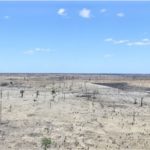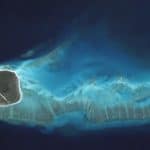Insecurity in Madagascar.
It is enough to skim the Foreign Office's advice on Madagascar for 5 minutes to see that the same theme comes up again and again, namely security.

I let myself be carried away by the rumors, analyzing and researching violent stories behind which fear and anxiety are hidden. Since 20 years a lot has changed which is normal, the population density had almost doubled in the meantime and the poverty had increased.
But the "I came, I saw, I conquered" of all the great survivors of a stay in Madagascar makes me laugh. Almost as much as the great defenders of the island who vehemently deny all accusations: Insecurity in Madagascar is a bit like everywhere else and rather much less than in Europe. Of course, we all know the extent to which thieves, swindlers rage in Europe, just like the dahalo (cattle thieves) here.
I therefore think it is essential to distinguish between psychosis, caution, and unconsciousness.
Given the low level of knowledge in a country, preconceived notions are very common. Many use the little information gathered on the subject to make a generalization. This also applies to the Foreign Office.
One thing is for sure, the imagination runs wild in the face of the unknown, and generalities come far too easily.
But specifically, Madagascar and security, what about it?
According to the Quai d'Orsay map, Madagascar is far from the most worrisome country, but the country is approaching 
So, yes, it is obvious that Madagascar is not a security model. But we have to put things in context. The country is affected by poverty, corruption, and unstable politics. I will try to describe below the different risk factors.
When one side sees insecurity, the other side sees survival.
What kind of uncertainty should we expect?
NATURAL RISKS: LOW
From December to April, Madagascar is in the middle of the hurricane season. Cyclones mainly affect the coasts and can be very violent, causing huge wind gusts and flooding. When a cyclone approaches, air traffic is sometimes disrupted and the road network can also be damaged after a cyclone passes through.
KIDNAPPING AND TERRORISM: NOTHING
There is no kidnapping of tourists.
Madagascar is not the target of terrorist attacks.
RISK OF THEFT IN URBAN AREAS: MEDIUM
Petty crime and pickpocketing are very common in some neighborhoods of Antananarivo, but rare in the province.
Avoid going outside with valuables and be careful when taking out phones or cameras (if you are in a group, one person may be watching). Backpacks are preferable to easy-to-pull handbags. Also, be careful with easily accessible bags. Pickpockets are very clever, and you won't feel a thing!
Once night falls, avoid walking and use your own car or cab.
RISK OF THEFT IN RURAL AREAS: LOW
Petty crime and pickpocketing are much rarer than in the city, but not completely non-existent.
Avoid wild camping without supervision.
RISK ON THE ROAD: WITH DRIVER LOW, WITH PUBLIC TRANSPORT MEDIUM.
In urban transport, the risks are mainly related to pickpocketing. It is not advisable to carry valuables or use the phone with open windows or unlocked doors.

Therefore, it is not advisable to travel alone at night outside the city. You can either wait until daybreak to get back on the road or join the "caravans" that travel in groups. The drivers will know the places at risk and will inform you of the measures to take.
The greatest risks on the road occur primarily when traveling by bush cab. Between bad roads, woefully maintained and overloaded vehicles, tired drivers and dangerous driving, accidents are not uncommon. They are, in my opinion, the biggest danger for the few tourists who prefer such a cheap option.
CONVENIENT: LOW
As with any country suffering from poverty, sometimes any means is good to scrape together a little more money.
For foreign exchange you should use your hotel, exchange offices or banks. For all excursions (cab, sightseeing, etc...) you should clarify the prices from the beginning. Do not change money at money changers at the airport, no 
Security problems may seem frightening to list in this way, but once the information is shared, the risks are very easy to avoid with adapted behavior. One must be aware that a country suffering from poverty cannot enjoy the same security as a western country. The rules to follow are simple and not binding in order to fully enjoy the trip. Madagascar is a country as beautiful as it is complex, and you just have to use your common sense to discover it safely.
My experience since 2001:
Has me and my guests in almost 20 years but only once happened that a bag with a photo lens through an open window in the hotel was stolen. That was the only incident and the guest has been compensated in an accommodating manner by the hotel owner.
The little tricks:
- Photocopy and scan all important documents (passport, insurance...). Be careful though, the police regularly check the papers of foreigners (especially at night). A simple photocopy is not enough. If you want to leave your papers safely in the locker of your hotel, you can have the photocopy of your passport and visa legalized. The legalization is done in the Fokotany (equivalent to a city hall).
- Take a pouch that you can wear discreetly under your clothes and avoid putting all your money in one place.
What to do in case of an attack?
- It's best to leave it up to you, because aggressors usually only resort to violence when the victim retaliates.
- Go to a police station and inform the consulate or embassy with the loss report.
















